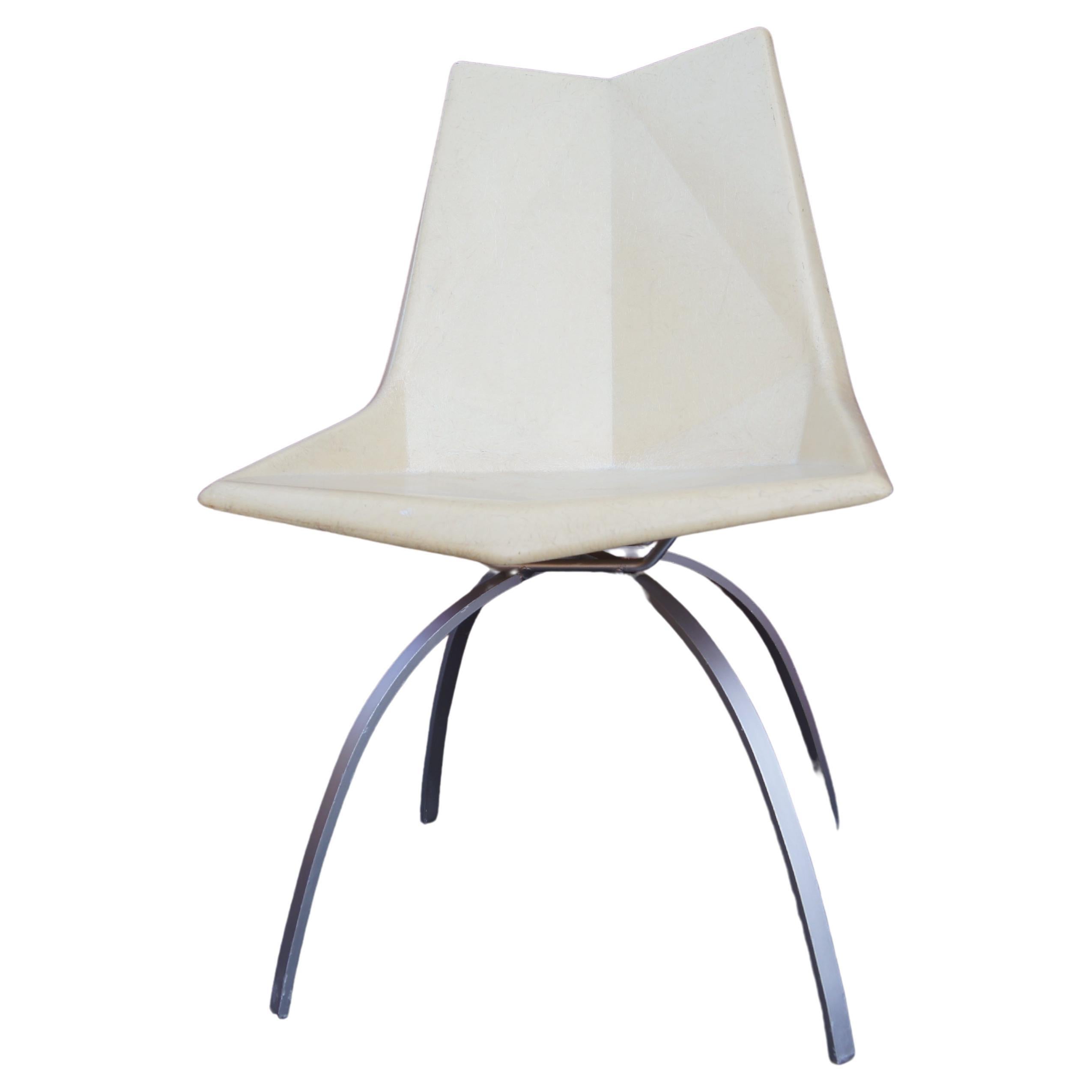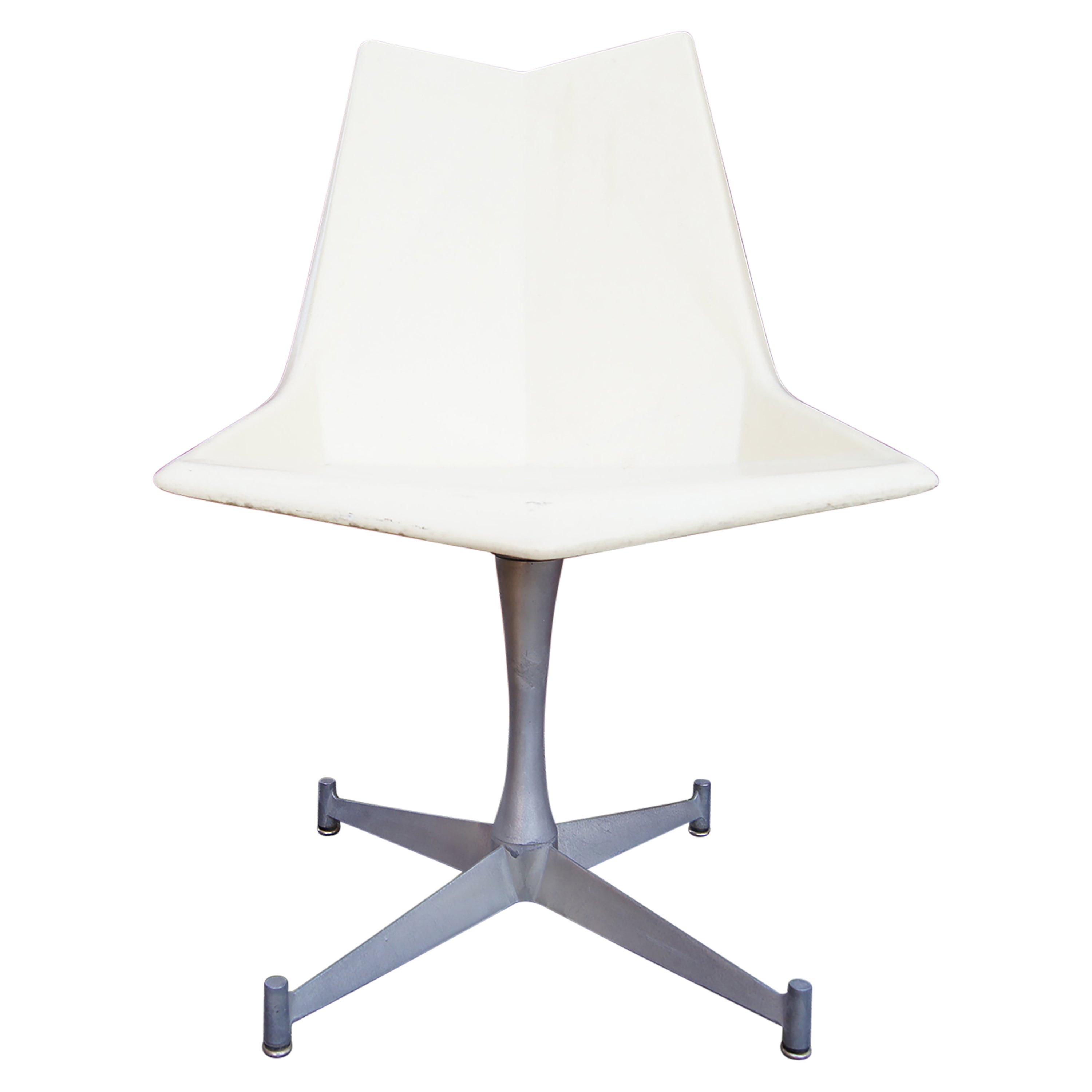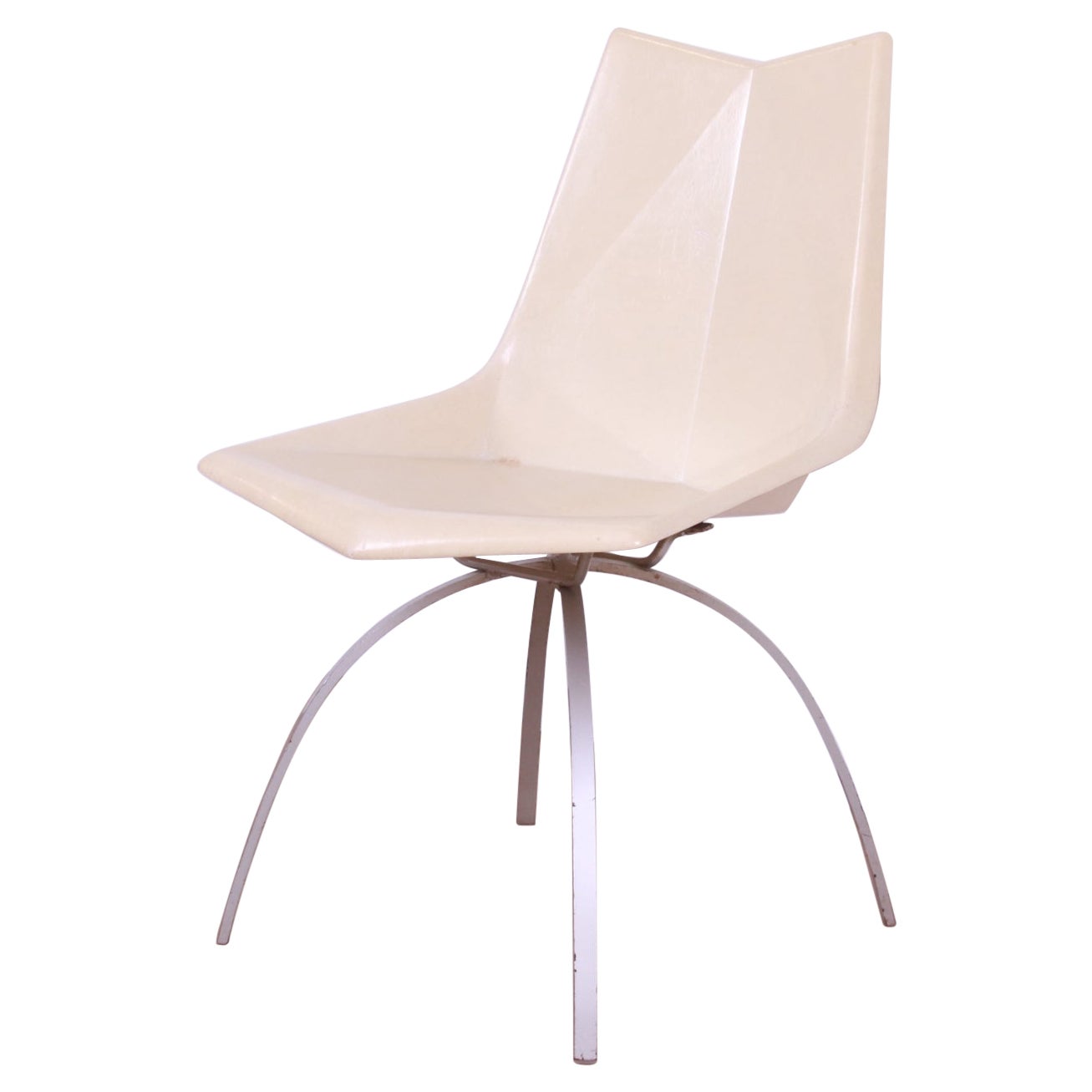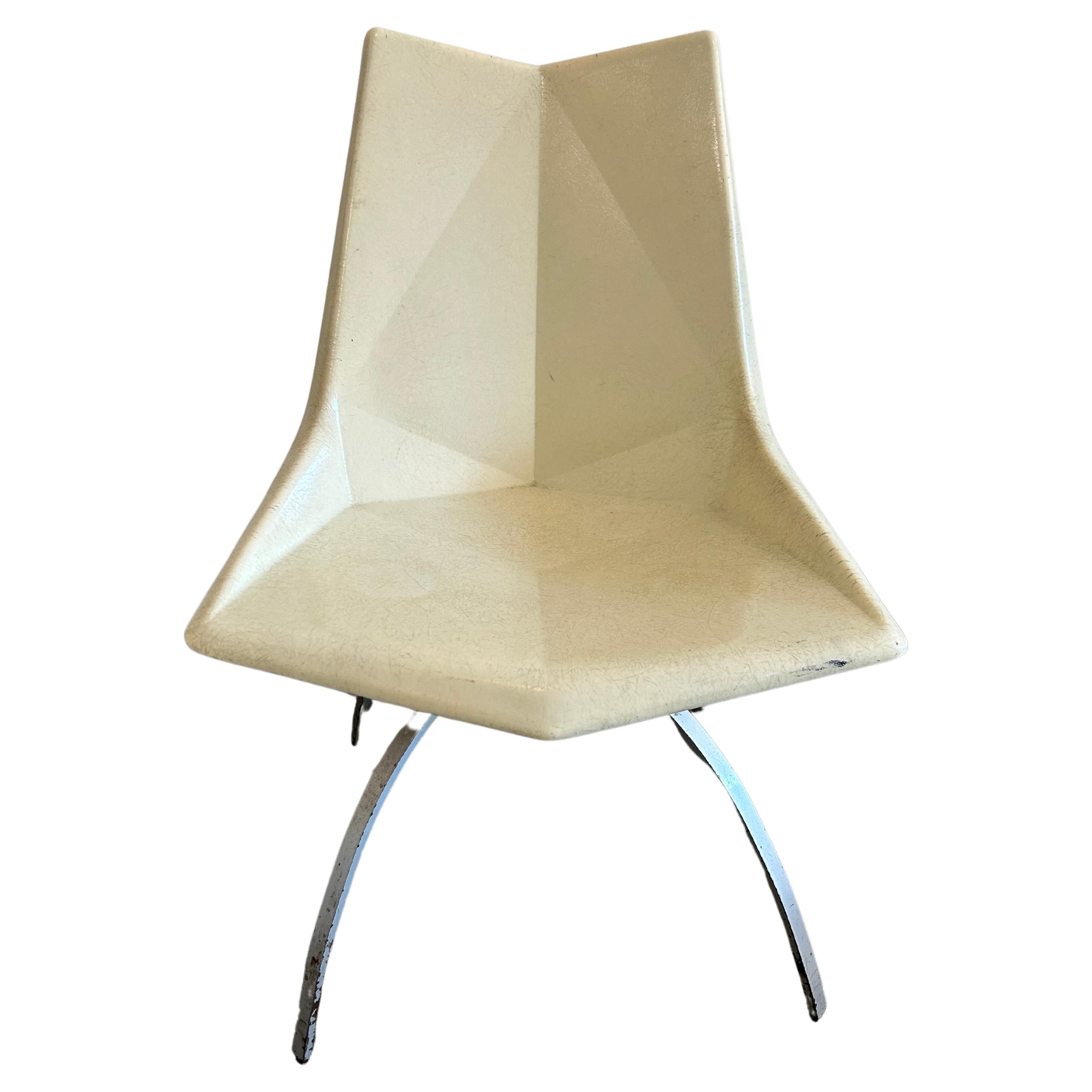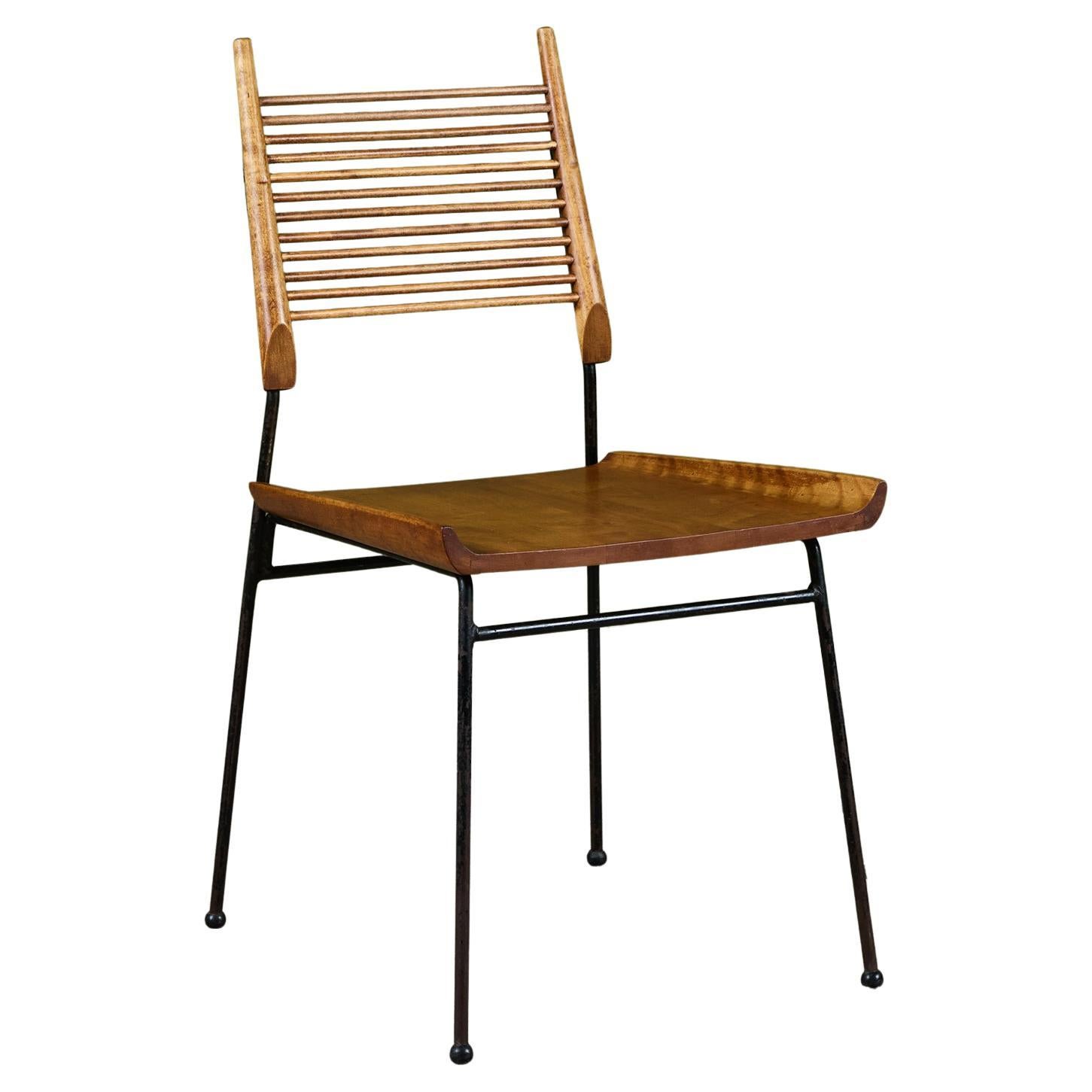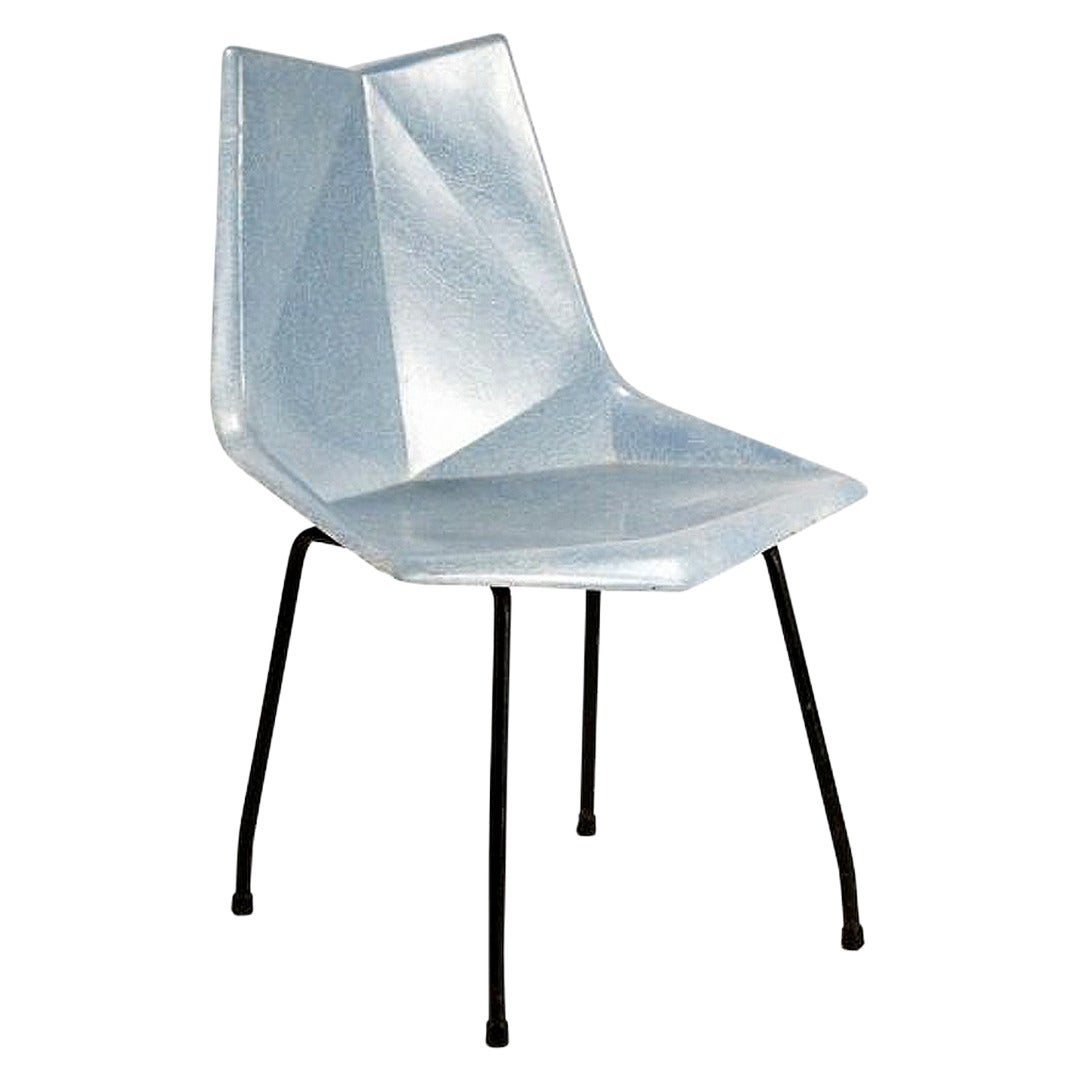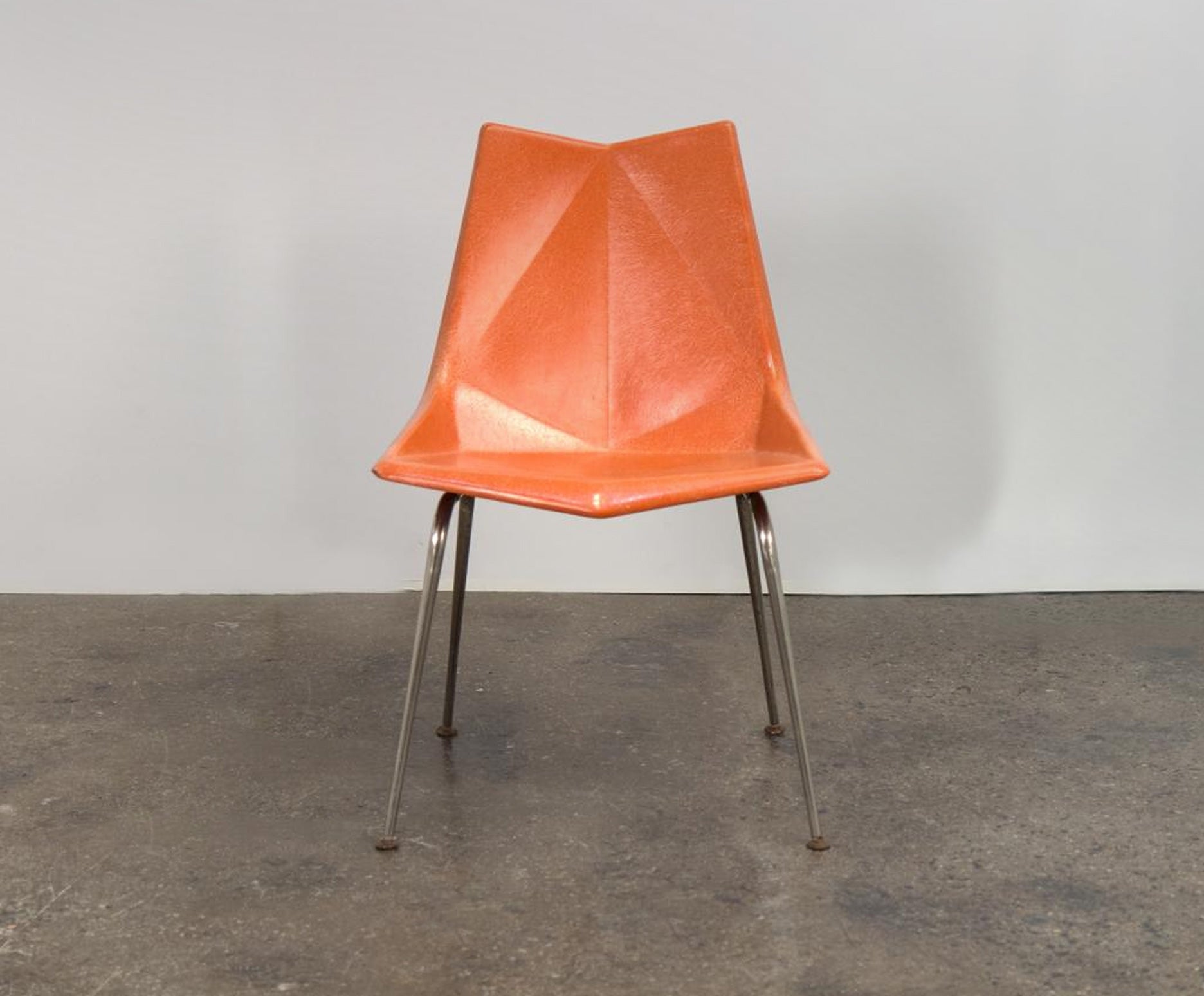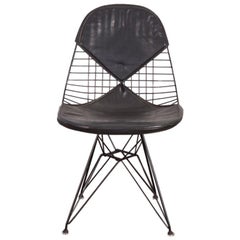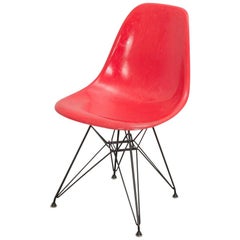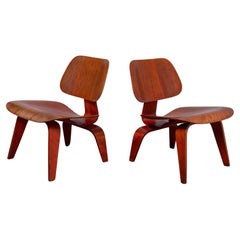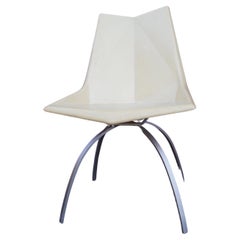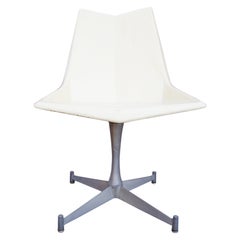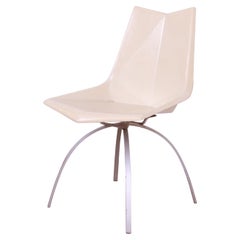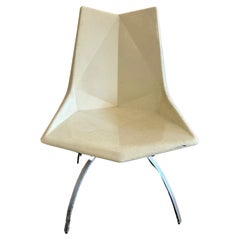Rare White Paul McCobb Origami Chair on Spider Base
About the Item
- Creator:Paul McCobb (Designer)
- Design:
- Dimensions:Height: 32 in (81.28 cm)Width: 21 in (53.34 cm)Depth: 17 in (43.18 cm)Seat Height: 17 in (43.18 cm)
- Style:Mid-Century Modern (Of the Period)
- Materials and Techniques:Fiberglass,Molded
- Place of Origin:
- Period:
- Date of Manufacture:circa 1960
- Condition:Wear consistent with age and use.
- Seller Location:Brooklyn, NY
- Reference Number:Seller: OAM00081stDibs: LU954111594401
Origami Chair
It’s universally known as the Origami chair — a moniker that references the long tradition of delicate paper-folding art that was popularized in Japan. Originally, however, the intent was to create seating that was exceptionally strong.
Promoted under its official name in a Directional Furniture brochure as sturdy enough for “extraordinary conditions” and “eminently suited to hard wear,” the Faceted Form chair in 1959 was the creation of Paul McCobb (1917–69), one of America’s most prolific mid-century modern designers.
A repeat recipient of the Good Design Award from the Museum of Modern Art, McCobb studied drawing and painting at the Vesper George School of Art in Boston, the city in which he was raised. McCobb designed retail displays, worked in interior design and then founded Paul McCobb Associates in 1945 in New York City, where he conceived of designs that modernized classic Shaker ideas such as simplicity, functionality, form and proportion.
McCobb popularized modular furniture and created sculptural forms with elements such as slender, splayed legs on tables and chairs. Details like these are prominent in the refined and affordable collection for which he is likely best known — the Planner Group (1950).
The openly geometric Faceted Form chair is indicative of McCobb’s late-career exploration of new materials and industrial design. With its fiberglass-reinforced plastic shell set atop a base of tapered enameled tube steel, the chair is one of his most acclaimed designs. While it is no longer in production, it was originally available in multiple colors, and variations included an armchair, a swivel chair and more.
Sculptural and strong, McCobb’s Faceted Form chair has been an example for generations of furniture makers that have followed in the decades since.
Paul McCobb
The single aesthetic attribute of vintage Paul McCobb furniture is that the designer completely forsook ornament — his pieces have no flourishes. And yet, because they are honest — McCobb’s chairs, desks and dining tables are made of solid wood, usually maple or birch, often paired with frames and legs of wrought iron; the cabinets are traditionally scaled; the seating pieces have historic antecedents such as the Windsor chair — his mid-century modern work has warmth and presence.
You could call the Massachusetts-born McCobb a man of parts. As a furniture designer, his work combined the attributes of many of his now better-known peers.
Like the work of Bauhaus designers such as Ludwig Mies van der Rohe and Marcel Breuer, McCobb's furniture had purity of form and line. Like the designs of Florence Knoll and George Nelson and his associates, McCobb’s work was efficient and purposeful. And even like George Nakashima, he was adept at interpreting traditional forms, in particular those of chairs, for the 20th century.
More than any other designer besides Russel Wright, with his ubiquitous ceramic tableware, McCobb was arguably responsible for the introduction of modern design into middle-class American households — if for no other reason than that he designed the 1952 set for the original Today show.
McCobb, a repeat recipient of the Good Design Award from the Museum of Modern Art, also designed cohesive lines of furnishings, such as his best-known Planner Group, that gave homes an instant “look.” He designed for several companies, most notably Directional, which was home to McCobb’s Origami chair.
In 1949, in partnership with New York furniture salesman B.G. Mesberg, McCobb set up the Directional Furniture Company, a brand known to vintage mid-century modern furniture collectors everywhere. Directional opened its doors after McCobb created the high-end Directional Modern line of sofas distributed by the New York-based Modernage Company. Directional also produced designs by other legends such as Paul Evans and Vladimir Kagan.
As you can see from the offerings on 1stDibs, McCobb designs are the pin-striped suit, or the little black dress, of a decor: an essential.
Find vintage Paul McCobb credenzas, bookcases, nightstands and other furniture on 1stDibs.
- ShippingRetrieving quote...Shipping from: Brooklyn, NY
- Return Policy
More From This Seller
View All20th Century Mid-Century Modern Chairs
Metal
Vintage 1960s American Mid-Century Modern Dining Room Chairs
Fiberglass
Vintage 1960s Mid-Century Modern Dining Room Chairs
Fiberglass
Vintage 1940s American Mid-Century Modern Lounge Chairs
Plywood
Mid-20th Century Danish Scandinavian Modern Side Chairs
Cane, Oak
Vintage 1970s Mid-Century Modern Chairs
Paper
You May Also Like
Mid-20th Century American Mid-Century Modern Side Chairs
Metal
Mid-20th Century American Mid-Century Modern Side Chairs
Metal
Vintage 1950s American Mid-Century Modern Side Chairs
Steel
Mid-20th Century American Mid-Century Modern Dining Room Chairs
Steel
Vintage 1950s American Mid-Century Modern Side Chairs
Iron
Vintage 1950s American Mid-Century Modern Chairs
Metal
